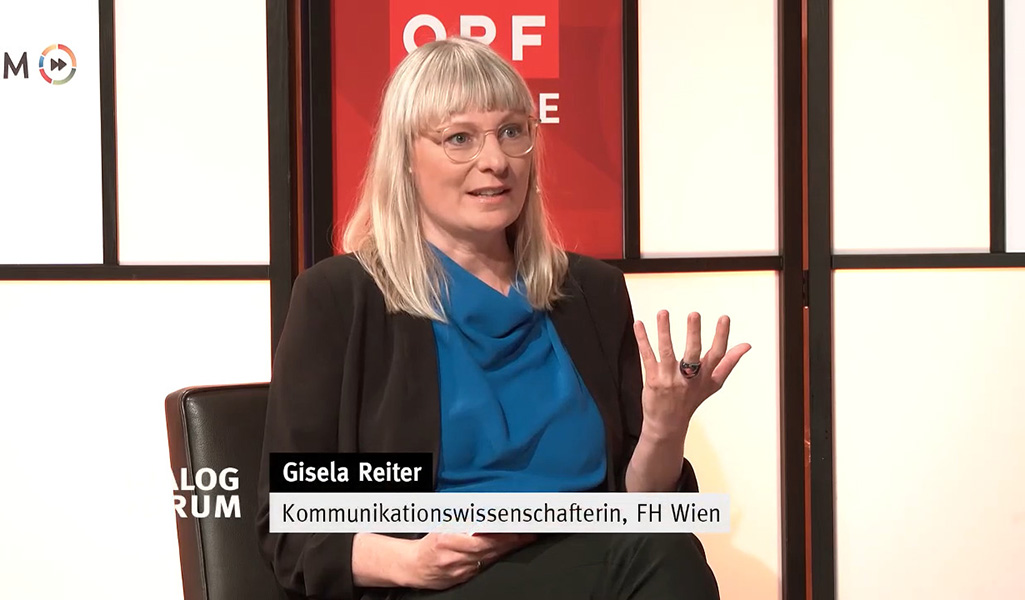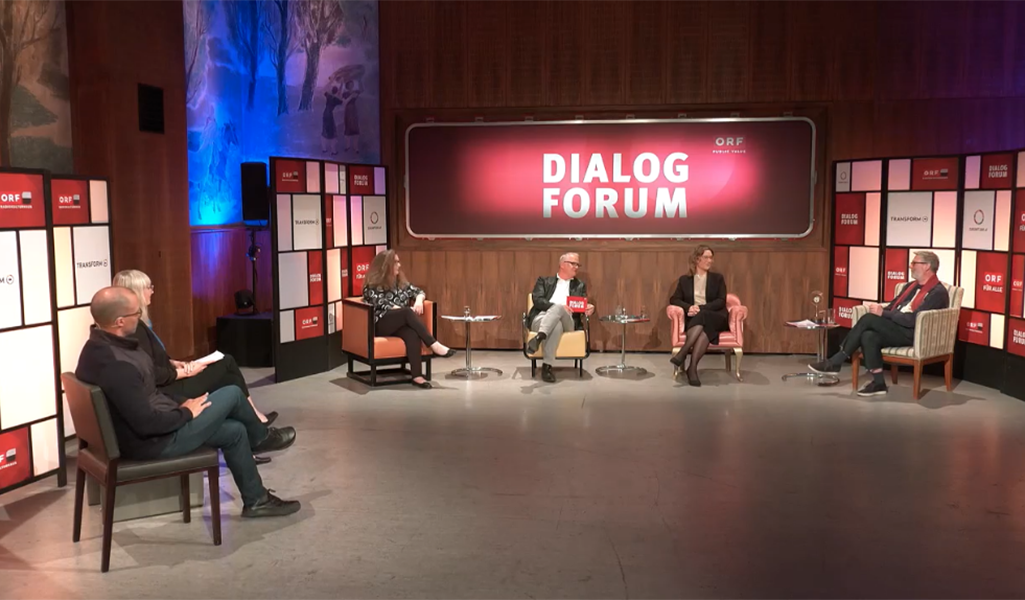As part of the current public value report, the ORF asked academics for their assessment. Gisela Reiter from the Journalism & Media Management Study Program is one of them and discussed the results at the ORF DialogForum.
Every year, around 100 ORF employees and productions are honored for their journalistic and artistic work. The current Public Value Report (in German) presents a selection of the award winners and asked scientists to carry out a public value check.
- How can media quality be recognized?
- How does it fulfill the public service mandate?
- And last but not least: Who benefits from ORF and how?
These questions were discussed on May 13, 2025, at the ORF DialogForum in the RadioKulturhaus. Gisela Reiter from the Journalism & Media Management study programs was a participant in the discussion and one of the scientists who commented on aspects of the ORF program in the report. The recording of the discussion can be watched at zukunft.orf.at in German.
The communication scientist is represented in the current Public Value Report with her assessment of the topics “knowledge”, “entertainment”, “integration”, “identity” and “innovation”:
… regarding KNOWLEDGE:
“Historical data and facts often appear a bit antiquated – this is where new formats and narrative styles such as the radio series ”4000 Years of Defeats” can offer added value for listeners, because this is exactly what ORF should consider for its programs: Entertainment with attitude. Presenting historical contexts with a lot of humor and from a different perspective is a step in the right direction.”
… regarding ENTERTAINMENT:
“ORF has been known for years for providing first-class information, but the entertainment formats have sometimes been criticized. Media users should be reminded more often how important the ORF is for the Austrian film landscape and what high-caliber film productions the ORF provides. For example, ‘Das Schweigen der Esel’ (The Silence of the Donkeys) from the Landkrimi series adds another component: not only are local customs incorporated into the story, but dialect is also spoken here. A further contribution to the examination of the diversity of different languages and cultural characteristics within Austria.”
… regarding INTEGRATION:
“The journalistic function of uncovering serious grievances and stimulating social debate in this regard is vividly demonstrated in the Robert Hochner Prize-winning report ‘Wuchermieten’. In this context, however, the question arises as to whether a TV report alone provides enough leverage to achieve far-reaching political consequences. Perhaps ORF should also use other platforms to make injustices and grievances accessible to a wider public.”
… regarding IDENTITY:
“Putting the focus on women who have sometimes received little attention historically, but are nevertheless influential, is timely and important. Storytelling, which also makes history tangible by means of individual fates, brings supposedly dusty history into the present.”
… regarding INNOVATION:
“Generative AI can hallucinate, and if unverified or false information is published by ORF, this can lead to an enormous loss of trust. Public service media such as ORF must be transparent about the use of AI and clearly communicate quality assurance. Cooperation between other public media makes sense in this context. They must agree on clear common quality standards and communicate these emphatically to users.”

